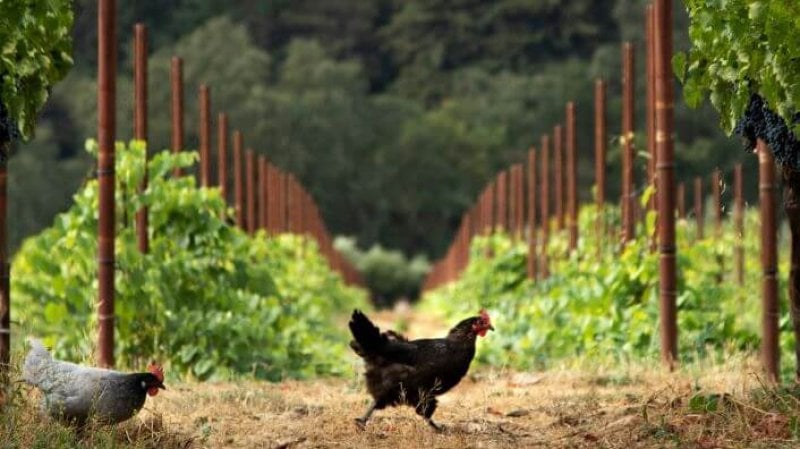To Lauren and Alex Benward, sixth-generation owners of the Beltane Ranch vineyard in Glen Ellen, Calif., the word “sustainability” does not adequately convey the agricultural measures that they and many of their fellow vineyard owners have adopted in recent years. Steering clear of pesticides and industrial tillage is a no-brainer. They also use roving chickens to forage for pests, maximize soil fertility by planting cover crops like ryegrass and employ a herd of sheep — referred to as “woolly weeders” — to help fertilize the fields. Even the vineyard’s wine shipments reflect land stewardship: Bottles — recycled, with natural corks — are transported with carbon-neutral shipping.
This holistic approach to land management is called regenerative agriculture. It eschews conventional farming techniques and taps into composting, pollinator habitat restoration and other measures to encourage nutrient-dense soil. These practices also curb skyrocketing carbon emissions by coaxing nitrogen from the atmosphere and into plant roots, a practice known as carbon sequestration.
“Sustainability infers maintenance. We are focused on improvements,” said Ames Morrison, who also practices regenerative agriculture on Medlock Ames.
And while many wineries around the world are also implementing decarbonization measures, vineyards in Sonoma County are some of the earliest pioneers in the practice.































